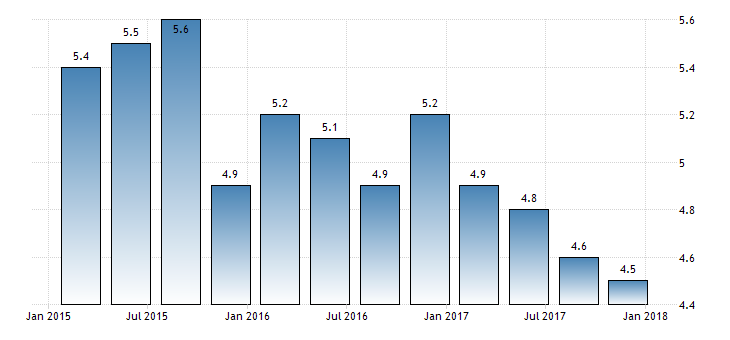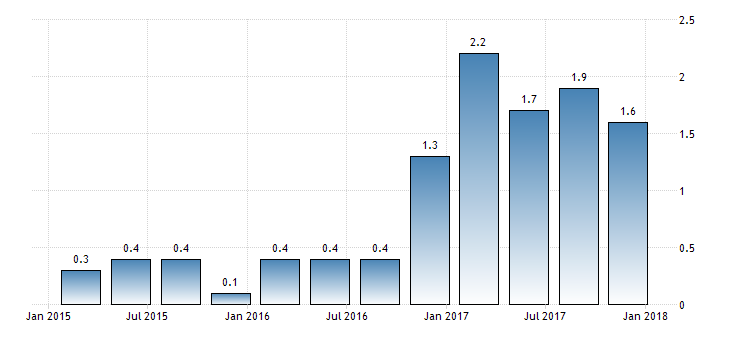
The state of the economy of New Zealand and the prospects for raising the interest rate of the RBNZ. Alexander Sivtsov.
In this article, we will analyze how key economic indicators have changed over the past year, on the basis of which we will find out whether it is worth expecting an increase in the interest rate of the Reserve Bank of New Zealand (RBNZ) in 2018.
As you know, the New Zealand economy has an export orientation. The main sectors of the economy are: agriculture, manufacturing, food industry, and tourism, which is gaining momentum every year. We will not dwell on a long story about New Zealand, as a beautiful country for life, because of its beauty, developed economy and clean ecology, and it’s better to go directly to the main indicators of the country’s economy.
GDP
Gross Domestic Product (GDP) – is a key indicator of the health of the country’s economy and is always taken into account by investors. New Zealand’s GDP growth in annual terms in 2017 reached its lowest level since 2015, indicating a slowdown in the country’s economic growth.
Fig. 1. Dynamics of GDP growth in New Zealand from 2015 to 2017.
Unemployment rate
The unemployment rate indicates the percentage of the total workforce that is unemployed. Low unemployment in the country speaks of the strength of the labor market, which has a positive effect on consumer spending and the inflation rate in the country. The unemployment rate in New Zealand in the last three years has fallen to the minimum level of 4.5%, compared to the maximum value of 2015 at 5.6%, which indicates the strengthening of the labor market in the country.
Fig. 2. Dynamics of changes in the unemployment rate in New Zealand from 2015 to 2018.
Inflation rate
The change in the inflation rate is one of the key indicators of the country’s economic growth, while the inflation rate should remain at 2% -3%, since a lower value indicates slow economic growth, and a significant excess of the key level indicates a crisis in the country’s economy. According to recent data, the inflation rate in New Zealand is 1.6%, while in the period from 2015 to 2016 this indicator did not exceed 0.4%. The increase in the inflation rate in New Zealand was promoted by the reduction of the interest rate of the RBNZ to 1.75%, as well as the recovery of oil prices.
Fig. 3. Dynamics of changes in the inflation rate in New Zealand from 2015 to 2018.
New Zealand’s construction sector
Against the backdrop of the high rate of tourism development and the influx of immigrants in New Zealand, the country has experienced a significant shortage of residential real estate, as a result of which the construction sector has also undergone significant growth. Against the backdrop of the expansion of the construction sector, the growth in real estate prices in New Zealand has also undergone significant growth, in some regions, house price growth at an annual rate of 13.1%, which is also facilitated by the low discount rate of the RBNZ.
In February 2018, New Zealand legislators decided to introduce a deterrent to foreign investors who want to buy residential real estate in the country. It was decided to raise the time threshold for the payment of the capital growth tax from the purchase of real estate from two to five years. It is expected that this decision will reduce the inflow of foreign capital into the real estate sector of New Zealand, thereby reducing inflationary pressure in the sector. Also, a decline in foreign investment could put pressure on the New Zealand dollar, thereby pushing the growth of consumer inflation in the country.
Conclusion
Drawing a conclusion on this article, it is worth noting that against the background of a slowdown in GDP growth rates and keeping the inflation rate below 2%, the Reserve Bank of New Zealand should not expect an interest rate increase in the short term, as more significant strengthening of the New Zealand currency will negatively affect on the economic growth of the country.
Alexander Sivtsov


